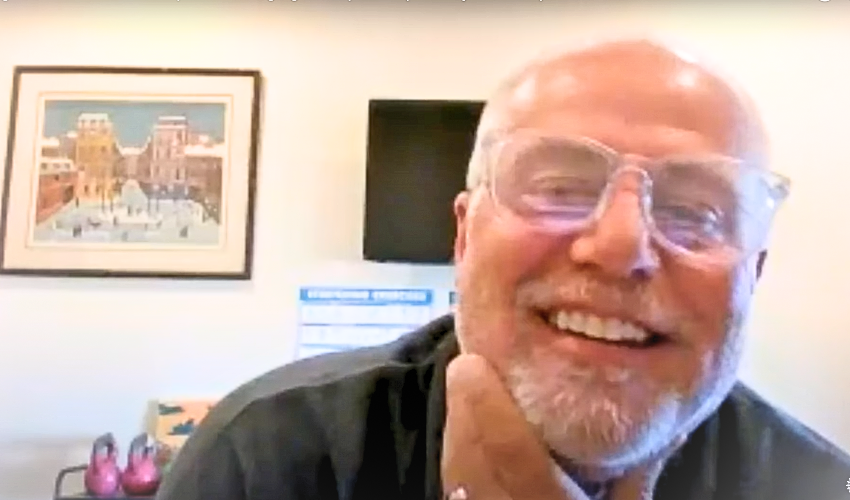
“Finding this choir made my life easier”: A stroke survivor on the unexpected joys of singing with others

Brian Sisk is a stroke survivor and a participant in a choir for people living with aphasia, led by SingWell Research Theme Leader on Aphasia Dr. Jessica Richardson. Joined by vocologist and speech-language therapist Nicole Gallegos, Brian and Jessica took part in SingWell’s “Singing and Aphasia” Speaker Series session on January 17, 2025.
You can watch a recording of the full session on SingWell’s Youtube. Here, we offer a transcription of Brian’s account of discovering how singing with others could be a positive force in his life post-stroke.
This transcription has been edited slightly for length and clarity.
I’m 56 years old, and I had a stroke in 2016. I worked for IBM for a long time, too — 24 years. The stroke really set me back. I didn’t really participate too much in anything for the first year or so. I was rushed to go back to work. It was bad for me.
Then I had to go to my follow up visit at UNM. And I think I saw somebody with a flyer or something that said “neurological singing.” I still didn’t go. I waited another year or so before I was ready. But boy, has it helped.
"At first I didn't like it. I hated it. But I knew that it helped me get my words out, so I kept going. And eventually I started to like it. Now I like it a lot."
At first I didn’t like it. I hated it. But I knew that it helped me get my words out, so I kept going. And eventually I started to like it. Now I like it a lot.
I hated just telling people that I was doing it. Even with my wife, it was weird. I would say, “I’m going to choir,” and it didn’t click. I played football and baseball in high school. Singing was not my forte. But now, with everything that I’ve learned, it is.
"There's so many people there, and they're singing and laughing and everything. It's amazing."
I had all kinds of issues. But finding this choir made my life easier. I talk more, I get out more, I don’t isolate myself or anything. Singing really helped everything.
But it takes time for a person to be ready to participate. That’s what matters. You’ve got to mention it to them, and then wait on them, and see what happens, just keep pushing. Just keep talking about it. Eventually, if that happens, you’re going to change their mind. They’ll say, “Alright, let me see what he’s talking about now.” They’ll go and see that there’s so many people there, and they’re singing and laughing and everything. It’s amazing.
Caregivers participate, too. A lot of people come in with their husband or wife who has Parkinson’s. I think that they like it too.
For more on how group singing can support people living with aphasia, check out: